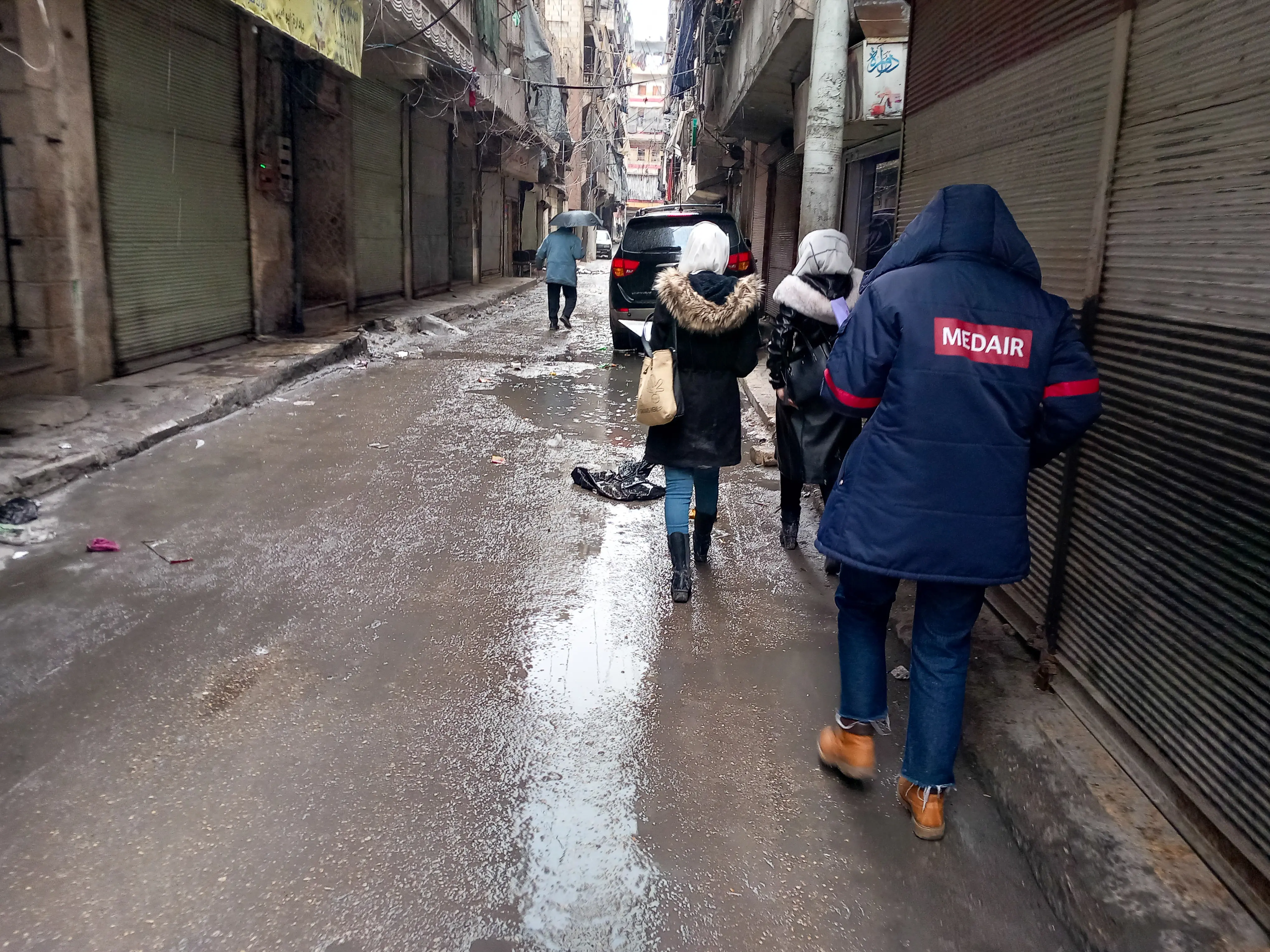Reaching those with disabilities
.webp)
Eighteen days of intensive house-to-house visits in Aleppo came to a close for Jihad, Medair's Disability Officer, and his team of dedicated community health workers (CHWs).
The team focused on assessing the physical needs of people with disabilities in Al Fardous and surrounding areas of Aleppo, northern Syria. Mapping the often-unseen needs and silent struggles of people with disabilities is a critical part of Medair’s work. These assessments help ensure appropriate assistive devices – such as wheelchairs, crutches, rollators, canes, raised toilet seats, therapeutic wedges, foldable beds, and shower chairs – are provided to women, girls, boys, and men who need them.
"Before embarking on these assessments, I invested three days in training the CHWs," Jihad explained, his voice reflecting the intensity of those days. "Our curriculum encompassed disability identification, essential health messaging tailored for this population, and the precise criteria for qualifying individuals for assistance."

Over 240 household doors opened and greeted Medair’s team in Aleppo city. Inside, they shared stories of hardship and resilience. CHWs conducted comprehensive health assessments to determine the most suitable assistive devices for each person with a disability. Despite the physical and emotional toll, the team's shared commitment to their community ignited a contagious motivation.
Zeina, one of the CHWs, summed up the team’s sentiment: "It wasn't just work; it was an incredibly rewarding experience. The opportunity to learn and support my friends, family, and neighbours has been truly fulfilling."
The assessments ensure Medair can identify the individual needs of each person. Jihad emphasised their importance: "Accurate disability identification is paramount in providing appropriate assistive devices. In some cases, we've identified a need for further medical attention, and we'll be referring these individuals to specialised care."
%20(1).webp)
Having completed the assessments, Medair subsequently procured and distributed assistive devices to 250 people in Aleppo City. This next step is a tangible sign of hope for those with disabilities in the community. Assistive devices support greater independence in daily tasks, improving self-reliance and dignity. They also help individuals participate more fully in education, work, and social life, reducing isolation.
Medair is deeply grateful to Chaîne du Bonheur (CDB) for their generous support, which enables this important work – empowering people with disabilities to live more independently. This humanitarian work is an inspiration, embodying the power of human compassion and the transformative impact of community-driven initiatives.
Medair services in Syria, including Deir ez Zor, are funded by ECHO, Syrian Humanitarian Fund and private donors.
This content was produced with resources gathered by Medair field and headquarters staff. The views expressed herein are those solely of Medair and should not be taken, in any way, to reflect the official opinion of any other organisation.
.webp)
.webp)
.webp)